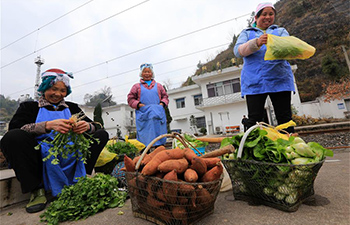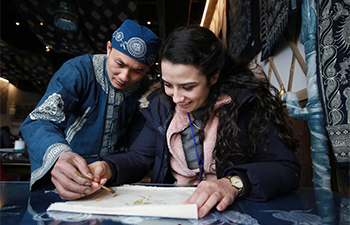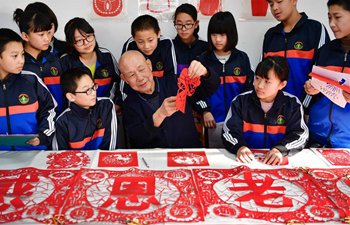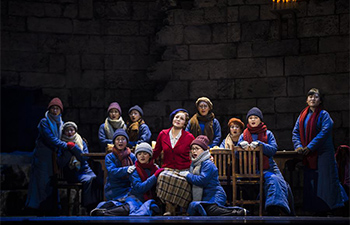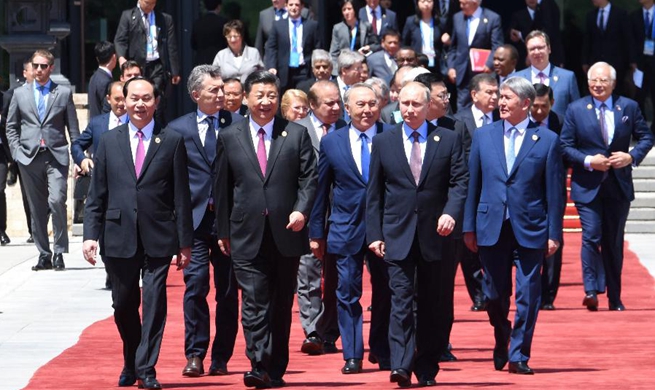MANILA, Jan. 12 (Xinhua) -- The Philippine government has launched an inter-agency fact-finding group that will look into the monument honoring the Philippine "comfort women" during World War Two, said Foreign Secretary Alan Peter Cayetano on Friday.
Cayetano called the probe in the wake of Japan's opposition to the erection of a seven-feet bronze sculpture that depicts a blindfold, grieving woman in Maria Clara traditional Filipiniana gown that stands along a public promenade in Manila's busy Roxas Blvd.
Japan wants the Philippines to take down the monument which was unveiled in December.
Cayetano said the fact-finding process on how the statue came about is ongoing. He did not want to disclose the Department of Foreign Affairs (DFA) position on the issue, but he hinted that the construction of the statue "will really affect certain feelings and relationships."
"I don't think it will be good," Cayetano said, but noted that the DFA's position is "always based on Filipino interest."
Although such interests would sometimes "diverge" in the interest of maintaining good relations with another country, he said the government also "have to deal with the feelings of our people with regard to certain issues."
"That's the context of the DFA's comments. There are no final findings yet from the inter-agency group and I think they are still in the stage of fact-finding who put it up, why did they put it up, where do they put it up, who got the permits," Cayetano said.
He said the DFA was not consulted when the statue was conceptualized and erected.
Aside from the DFA, the other members of the government fact-dining group are from the Department of Public Works and Highways, the city government of Manila and the National Historical Commission.
Activists sympathetic to the plight of the former sex slaves urged Philippine President Rodrigo Duterte to ignore Japan's request to remove the statue.
In a meeting with Duterte last Tuesday, Cayetano said Seiko Noda, Japanese Minister for Internal Affairs and Communications, expressed concerns and regrets over the monument.
A National Historical Commission official said the Philippine memorial symbolizes Filipino women who suffered abuses during the Japanese occupation from 1942 to 1945.
According to the Lila Pilipina (League of Filipino Women), an organization of wartime sex slaves, there are 174 "comfort women" in the Philippines who have gone public since the early 1990s. Only a few of them remain alive. Many of the survivors, in their 80s, can no longer go out to speak because of frail health.
Like the other Asian "comfort women," the Filipino war-time sex slaves also demand an official apology from the Japanese government.
Cayetano said he is not aware of any diplomatic protest filed by Japan, but said Manila is in touch with Japanese representatives in Manila and with its government in Tokyo.





